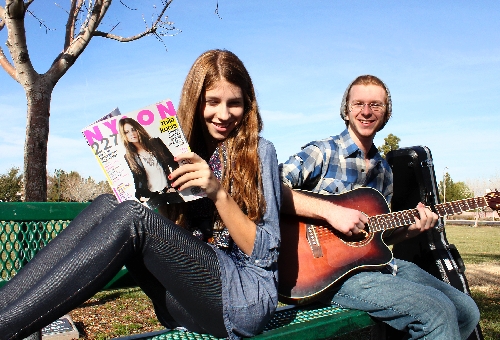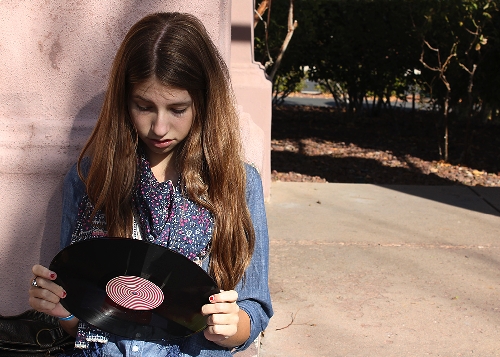R-Jeneration: Unconventional becoming conventional as hipster trend spreads
Sporting a V-neck T-shirt, cardigan and thick-rimmed glasses, the stereotypical indie rocker, as described by Tyler Naegle, obsesses over the latest underground band that nobody has ever heard of while toting his lunch of Nutella in a vintage lunchbox.
Naegle, a freshman at the University of Nevada, Las Vegas, is a self-proclaimed "indie" with a few disclaimers.
He feels that in some cases the true meaning of the word has been lost as the label has evolved, and he has some clarifications.
" 'Indie' originally only described independent artists who were not associated with a major company and recently turned into something that defines a culture, often with several frustrating contradictions," Naegle says. "I'd like to consider myself to be 'indie,' supposing that by saying I'm indie, I'm saying I'm an original person with original ideas and that I'm not always totally concerned about loving or fitting in with all of the things that are going on in mainstream pop culture. Unfortunately, over time, the concept of being 'indie' or 'hipster' kind of blew up into something that totally contradicts itself."
Sid Aamer, a senior at Green Valley High School, agrees.
Although she says she admires hipsters for their style, she has some issues with their attitude.
"Indie kids like thinking they're unique and special, but they aren't because there is a whole group of them," she says.
According to these students, there is a definite divide between what constitutes indie and the stereotype.
Melanie Chambers is a junior at Coronado High School who admits that she falls into some of the indie stereotypes such as her love for Oxford shoes. However, she doesn't believe she can call herself "indie" or "hipster" because doing so would defeat the purpose of the word.
She argues that the real spirit of being indie lies in the appreciation of art, music and fashion that aren't a part of mainstream culture. She stresses that true indie types do so of their own accord without merely jumping on the bandwagon because it gives them a cool image.
Despite this, Chambers recognizes that this way of life, which is intended to be unique, is quickly becoming anything but.
"(Recently, 'indie' and 'hipster') seem to more accurately denote a specific stereotype just like jocks or nerds," she says. "Now, it's just used to describe people who listen to obscure music, write sad poetry and wear an abundance of florals, satchels and Buddy Holly-style eyeglasses."
With all of these newfound labels to fill, Aamer feels like indie kids are often in a competition to see who can be the most obscure.
For example, she says, some hipsters will try to outdo each others' abstract photography or see who has the most quotes memorized from unconventional movies.
"It just seems like they compete," she says.
In an effort to restore positive connotations surrounding the indie and hipster culture, Chambers says she believes that as long as teens are true to themselves, they are in the clear.
"To quote Lily Allen, all people should be allowed to 'Say what they say, do what they do and feel what they feel as long as it's real,' " she says. "I only fear that popularity can turn on itself. The bigger the trend, the greater the likelihood that some who do not truly enjoy this lifestyle will do it anyway because everyone else is doing it."
Heidi Swank, a professor at UNLV specializing in pop culture, says such trends are important for teens because a community is developed, which gives teens a sense of belonging, something that is important during the adolescent years.
Asked to comment on the hypocrisy of these labels that claim to be unique yet produce stereotypical results, Swank sees no inherent contradictions.
"We are such social beings that it would be odd if that didn't occur," she says. "We seek out those like ourselves and often recruit others to be like us. It's part of being human."
R-Jeneration



















